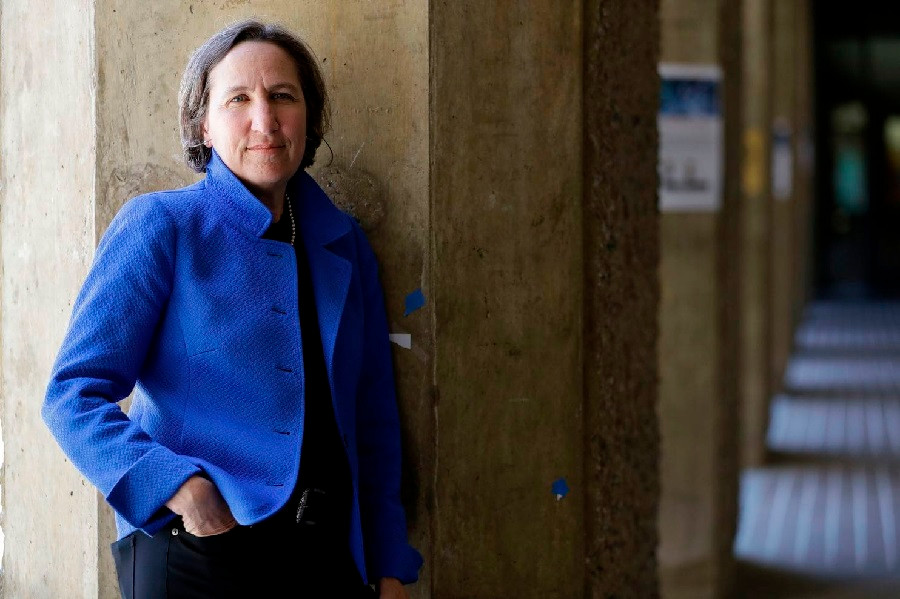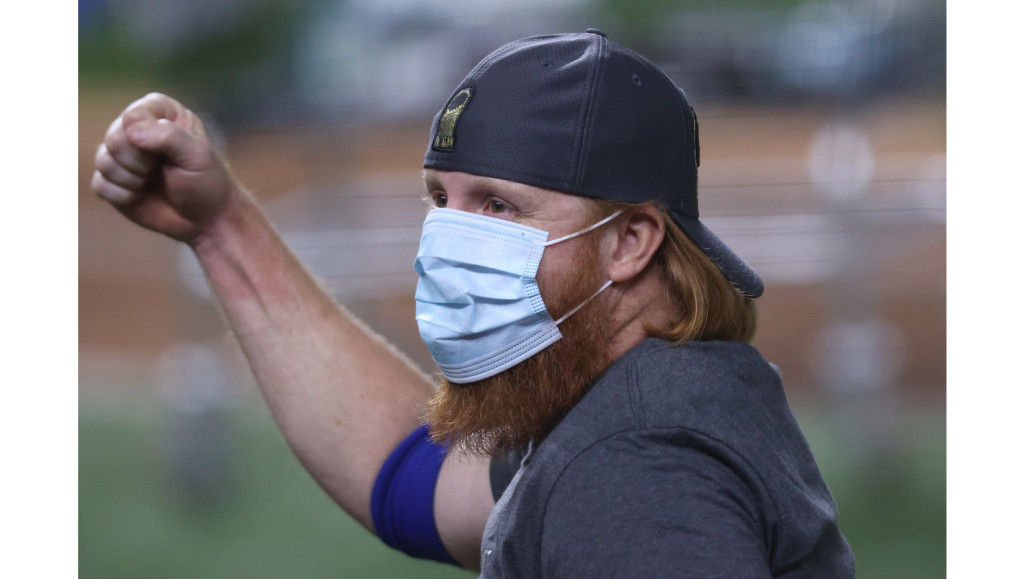By Washington Post Staff
It cost a school-shooting victim the safety of home.
It cost an athlete the joy of a victory.
It cost the family of a gay teen a battle with their community.
In 2018, online hate spiraled into an unavoidable force in American life. A staggering wave of threats, bigotry and rage came out of the dark and onto the apps and websites we use every day. It transformed the Internet’s great power to connect into a weapon.
The Washington Post spoke with people across the country who endured these cruel, often anonymous attacks. The angry messages and mean-spirited memes were seemingly everywhere, but these seven stories are about the part most observers never see: the human experience at the other end.
Hateful content has for years corroded the Internet’s standing as a place for conversation and community. But only in 2018 did the largest Internet companies begin to measure and disclose how toxic it could be – and how little of the damage they’d truly addressed. Facebook removed nearly 3 million pieces of hate speech between July and September, a 15 percent increase from the start of the year – and admitted how much it fails to detect. In September alone, YouTube removed 25,000 videos that broke its rules against harassment, cyberbullying, and “hateful or abusive” content.
Viciousness is emboldened by the anonymity, or at least the distance, offered by the Internet. It spreads through online services where the most outrageous post often gets the most attention. It flourishes in a polarized climate where stating a political opinion makes anyone open to personal attack.
The online hate presaged some of the year’s most disturbing and deadly attacks, including the mass mailings of homemade bombs to critics of President Donald Trump. Before the fatal shootings at a Pittsburgh synagogue that marked the worst anti-Semitic assault in U.S. history, suspect Robert Bowers used his account on social network Gab to link to YouTube videos of neo-Nazi propaganda, clips depicting black people as violent thugs and videos calling Jewish people “satanic.” The growth in online hate also paralleled what the FBI is calling a multiyear rise in reported hate crimes nationwide.
But the broader impact of online hatred was more subtle and widespread, etching scars into people’s psyches that could last longer than the attacks themselves. Many victims did not want to go public about the experience, for fear of opening themselves up to even more online wrath – or real-world attacks.
The stories of those who could talk about it revealed a haunting truth of life on the modern Web: The online hatred a stranger dashed off in seconds could linger for years.
The viral fury may have subsided, and the Internet may have moved on to some new and distant outrage. But the hidden damage left behind was not always so easy to forget.

CAMERON KASKY, 18, Parkland shooting survivor
Cameron Kasky is resigned to online hate.
“People are addicted to being awful, and there’s nothing we can do about it,” says Kasky, who has become a leading voice for gun control after February’s fatal shooting at Marjory Stoneman Douglas High School in Parkland, Florida.
When he began organizing the March for Our Lives protest, insults and intimidation flooded in through Facebook comments, tweets and posts on the website 4chan – at a rate of one every few minutes.
“I’ve got a developmentally disabled little brother, and people would tell me that they were going to ‘cut up my retard brother and put him in a gas chamber’ – which doesn’t even make any sense if they already cut him up.”
That’s Kasky making a joke, his go-to coping strategy.
“The first bunch were hysterical,” he says. “People were like, ‘I’m going to pull out every individual hair in your body.’ . . . Do you know how many hairs people have? That’s funny.”
But death threats, which he says he’s received by the thousands, do scare him. Twice, he says, people sent police SWAT teams to his house when there was no emergency.
Kasky quit Facebook after the threats “started getting graphic” but remained on Twitter. “I had something to say, my classmates had something to say, and we used a necessary evil,” he says.
He doesn’t entirely blame the social media companies that provide a platform for hate. “People saying horrible things to me: That’s their right. And I just have to sit there and take it,” he says.
The Internet, Kasky says, “brings out the worst in every single person.”
He does regret some of the way he used social media. “We did something wrong, which was make people focus on us as people and not our message,” he says.
He tries to not let hateful messages get to him. “I have a therapist, but I don’t really talk about the comments.”
Might they hurt him in ways he doesn’t yet recognize? “Maybe,” he says. “All of the Douglas kids are going to find out horrible s— about ourselves in the future, I’m sure.”
–Geoffrey A. Fowler

MICHELE DAUBER, 53, professor
When Stanford Law School professor Michele Dauber started her campaign to recall a controversial judge, a friend who was an experienced activist offered her some advice: Hide your identity from the Internet.
Dauber thought she was kidding. It was inconceivable that her fledgling crusade to disrobe Aaron Persky, a judge who in 2016 had given a lenient sentence to a perpetrator of sexual assault on Stanford’s campus, could provoke the type of hate that would undermine her safety. How ugly, she thought, could a local election in the liberal, well-off heart of Silicon Valley really get?
By January, when her recall campaign made it onto the June ballot, Dauber knew her friend was right.
Every time an article was published about the effort, she would brace herself for hundreds of comments attacking her body, her family and her credibility. They flooded her inbox and reverberated on Reddit and Twitter.
Dauber began to print them out and paste them on the door to her office. They covered the front of the door, and when she ran out of space there, she plastered them on the other side. “I wanted people to see, here’s this rape threat. Here’s this person threatening to cut my throat,” she said. “I wanted [people] to know that when you say these things, they rocket around the Internet, and crazy people pick them up.”
On Valentine’s Day, a letter, sent from Massachusetts and containing white powder, arrived at her office.
She opened the note inside. “Since you are going to disrobe Persky, I am going to treat you like ‘Emily Doe,’ ” it said, referencing how the victim in the Stanford rape case that Persky presided over was referred to in court documents.
In June, voters chose to remove Persky from office. Dauber says she still suffers the effects of the hate, including panic attacks. “I am still kind of afraid to answer the phone if I don’t recognize the number,” she says. “I still have a hard time checking my email and my actual mail.”
Dauber says she never talked publicly about how afraid she was. “I had to run this campaign and say it was fine,” she said. ” ‘Cause if you act like it’s a problem for you, they smell blood in the water.”
–Elizabeth Dwoskin

THE FAMILY OF RICKY STRATEN, 16, high school student
During a family camping trip, Sara and Debra Straten’s son Ricky came out on Instagram. Soon after, he started receiving homophobic threats in comments and images on the social network. One photo flashed two guns.
As soon as Sara Straten heard about the online hate, she asked Ricky to take screen shots – and then shut down his Instagram account. “I just didn’t want him to get picked on anymore. We don’t want to have to go through that again,” says Straten, 49.
“His initial emotional reaction was, ‘We’ll shut it down. It will stop. I’m fine. I’m fine. I’m totally fine. I’m really fine.’ But he’s not fine,” says Debra Straten, 55. All year, Ricky’s parents have been on a quest for justice for him.
It’s more than just mean words and pictures for this Fort Worth, Texas, family. In middle school, Ricky’s parents decided to home-school him for a semester after he was assaulted by members of his school basketball team. Being removed from friends and school sports left him depressed. He had to be hospitalized twice.
The recent online bullying brought all that rushing back. His parents say he went through periods of severe anxiety. “More than one time, we have had him sleep in our room with us so we can make sure that he didn’t do anything to harm himself,” says Sara Straten.
Before social media, a school bully would have reached maybe a dozen students, says Debra Straten. But the audience of one of Ricky’s abusers totaled more than 2,000 on Instagram. “That feels like an overwhelming wave of negativity. There must really be something wrong with you if hundreds of people you don’t even know hate your guts and wish you were dead,” she says.
Sara Straten, who works as a police officer, wants justice for her son, but it has been an uphill struggle. For months, she pressed the school to intervene. After a hunt, she found a detective who investigated three of Ricky’s classmates for violating Texas’ cyberbullying statutes, known as David’s Law. Now a case is making slow progress through the juvenile justice system.
Ricky, meanwhile, wants back on Instagram. “I understand that, because all his friends are on Instagram,” says Sara Straten. “He feels like he’s being punished, but I don’t know how else to protect him.”
–Geoffrey A. Fowler

OLIVER DARCY, 28, journalist
Oliver Darcy has had a front-row view of online hate all year, reporting on social media’s many ills for CNN. But in September, the senior media reporter unexpectedly found himself caught in the middle of the story.
Darcy had arrived at the Capitol for a congressional hearing where Twitter’s chief executive was testifying. He had just taken his place in line when Alex Jones, the conspiracy theorist and host of Infowars, charged toward him – and began accosting him as an “anti-free speech coward,” as Jones broadcast it on Twitter’s streaming service, Periscope.
For weeks, Darcy had reported on Jones’ videos, probing whether his attacks, including on the victims of recent school shootings, violated prohibitions on hate speech put into place by Facebook, Twitter and YouTube. Facebook and YouTube had already banned Jones. Twitter banished him a day after his invective against Darcy, for videos threatening reporters.
But the ban didn’t stop a tide of online hate directed at Darcy. One Twitter user called him the “scum of the universe.” The blowback became particularly severe among some users who present themselves as conservative and spread “misinformation about his reporting on misinformation,” as Darcy puts it. Many of Trump’s supporters have echoed the president’s language attacking CNN, Darcy says, such as one user who tweeted that Darcy was the “king of conspiracies and fake news.”
CNN security has been monitoring Darcy’s Twitter feed more aggressively this year for trolls, including those who have tried to post his address online. Darcy filters his mentions so he’s less likely to see their threats. “While you want to say it doesn’t get to you or influence your thinking, it does somehow seep into your mentality,” he says.
But the barrage of attacks also have come to inform his reporting, he says. Darcy’s feeds offer constant evidence that Facebook, Twitter and other social media sites have failed to slow the onslaught of online hate – even if they take action against someone like Jones.
“These are multibillion-dollar companies,” he says. “How they cannot get those things straight is beyond bewildering.”
–Tony Romm

CHARLIE WILKINS, 43, professional skateboarder and skate-park designer
It seemed funny, at first, to Charlie Wilkins that so many people had gotten it so wrong.
People on Twitter were scrambling to find out who had said cruel things to a 9/11 widow in a video that went viral in October – and they stumbled, incorrectly, onto Wilkins. They were passing his name and photos around, but they were targeting the wrong guy. Soon they’d realize it, he thought, and move on.
He was halfway through his morning coffee when he started to get scared. Hundreds, then thousands, were cursing him, rifling through his past, talking about where he lived and how to get him back. They screamed at his bosses to fire him. They called his wife a “satanic pedophile.” The next thing he knew, it was 9:30 at night, and he had barely moved from his computer screen.
He’d called the police, who sent officers to his home as the threats streamed in. “I know where you hang out,” one said. “Watch your back.”
Wilkins believed he could convince the faceless online mob that it was targeting the wrong guy. He messaged dozens of people directly, showing them proof, telling them the viral-video guy had made him mad, too. Some believed him, said sorry and disappeared. Others only grew angrier.
No matter what he did, there was someone else, with some new flicker of rage. “It felt like a thousand rabbits got out, and you’re just trying to catch them all,” he says.
He tried to take it in stride. It was just the Internet. But they were targeting his family, his job, his friends. They were everywhere, and the rage felt nearly endless, and he had no idea where they would stop. “They’ll squash anybody you’re associated with,” he says. “They’ll go after everybody until your life is ruined.”
Within a few days, the masses had moved on to something new. He tried to laugh it off. One night shortly after the attack, he was eating dinner at home, looking out a window at the Portland, Oregon, neighborhood that had always given him quiet bliss. It was black outside, where he imagined someone with a sniper rifle, hiding, piercing the nighttime stillness, sending a bullet through the back of his head.
It was a bad vision, he knew. He was safe. Still, he moved away from the glass.
–Drew Harwell

WANNA THOMPSON, 27, culture writer
Everybody has opinions about music. But when Wanna Thompson expressed hers on Twitter about Nicki Minaj, she got rebuked directly by the famous rapper – and then swarms of her angry fans.
“You know how dope it would be if Nicki put out mature content?” the Toronto-based freelance writer tweeted in June. “She’s touching 40 soon, a new direction is needed.”
The rapper, who has more than 20 million Twitter followers, caught sight of Thompson’s tweet and posted an indirect response defending her maturity. Minaj’s fans made the connection and started sending Thompson hundreds of hateful replies. “My Twitter was broken,” Thompson says.
The next day, according to Thompson, she got a direct message from Minaj herself, calling her “ugly” and other insults. “Just say u jealous I’m rich, famous intelligent, pretty and go!” it read.
After some deliberation, Thompson tweeted a photo of the message from Minaj. “There was a lot of miscommunication going on. So I had to clear my name,” Thompson says.
Then the hate from Minaj’s loyal fans, known as Barbz, really started flowing – on Twitter and Instagram, in emails, and after they found her phone number online. It “entered a new territory of terrifying,” Thompson says. “They called me a b—-, they said they’re going to kill me, they’re going to find me,” she says. Someone Photoshopped a picture of her daughter to liken her to a monkey.
“Wow, this is over a music opinion,” Thompson recalls thinking. “Her fans have a background of being nasty to people, which she kind of encourages.”
(A representative for Minaj didn’t respond to a request for comment.)
Thompson says that after she posted the messages from Minaj, she lost a writing job. As a writer about culture and hip-hop, “I don’t want this to be a mark on my career,” she says.
Six months later, Thompson says the hateful messages are still coming.
Online fan culture, she says, is evolving far away from just sharing similar interests. “Is this their way of connecting with each other? Or proving their worth to their favorite artist?” she says. “It is only going to get worse because a lot of celebrities are not thinking, not saying, ‘Hey guys, don’t do that.’ “
–Geoffrey A. Fowler

RACHEL MCKINNON, 36, track cyclist
Rachel McKinnon was proud. She’d won a major championship in a track-cycling race in October, breaking a world record and accomplishing a feat for which she’d been training for years. She’d also become the first transgender woman to ever win it. She celebrated by posting a photo of herself on Twitter, beaming from the podium.
She’d expected some hatred: At work, online and in her sport, she had routinely endured anxiety and trauma over the decade since her transition began. Then her tweet went viral. Suddenly, an online army of people she’d never met was criticizing everything that had made her who she was.
The sheer volume of it was stunning and disappointing. Thousands of hateful comments – saying she cheated, she didn’t belong or worse – poured in during what should have been one of the happiest times in her life.
“After a certain point, it becomes a blur,” says McKinnon, a college philosophy professor in Charleston, South Carolina. “The negative messages outweighed the positive by about 3,000 to 1.”
In the past, she’d changed her phone number, worried someone would publish it as part of a harassment campaign. But she began to change even more. She asked a friend to monitor her Twitter account. She turned off her phone notifications. She stopped taking photos around her home, for fear they might give clues to her address.
She had reached a new peak in her athletic identity, but she couldn’t stop hiding herself away: going back through her online history to make things private; cultivating online block lists; pulling personal details off her résumé. At race events, she needed to have videos and headphones “to tune out the world.”
She is still proud: “I have a jersey and a medal that can’t be taken away,” she says. But she is also tired and overwhelmed. On Facebook, she took her name – Rachel McKinnon, world champion – and changed it to something else.
–Drew Harwell










